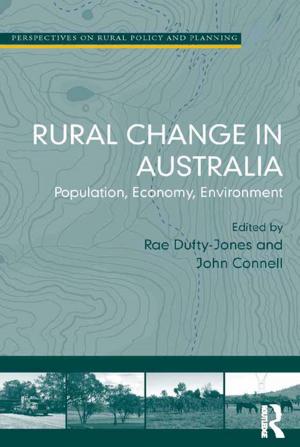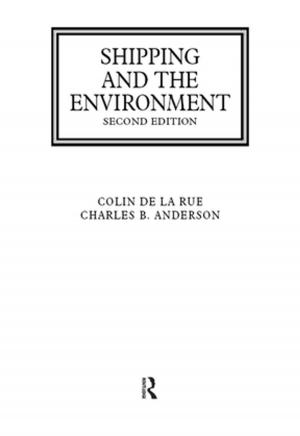Blackwashing Homophobia
Violence and the Politics of Sexuality, Gender and Race
Nonfiction, Health & Well Being, Psychology, Social Psychology| Author: | Melanie Judge | ISBN: | 9781315436357 |
| Publisher: | Taylor and Francis | Publication: | August 22, 2017 |
| Imprint: | Routledge | Language: | English |
| Author: | Melanie Judge |
| ISBN: | 9781315436357 |
| Publisher: | Taylor and Francis |
| Publication: | August 22, 2017 |
| Imprint: | Routledge |
| Language: | English |
As lesbian, gay, bisexual, transgender and intersex identities increasingly secure legal recognition across the globe, these formal equality gains are contradicted by the continued presence of violence. Such violence emerges as a political pressure point for contestations of identity and power within wider systems of global and local inequality. Discourses of homophobia-related violence constitute subjectivities that enact violence and that are rendered vulnerable to it, as well as shaping political possibilities to act against violence.
Blackwashing Homophobia critiques prevailing discourses through which violence and its queer targets are normatively understood, exploring the knowledge regimes in which multiple forms of othering are both reproduced and/or resisted. This book draws on primary research on lesbian subjectivity and violence in South Africa examining the intersections of sexual, gender, race and class identities, and the contemporary politics of violence in a postcolonial context:
• What are the contending ways of knowing queers and the violence they face?
• How are the causes, characters, consequence of, and ‘cures’ for, violence constructed through such knowledges and what are their power effects?
The book explores these questions and their implications for how violence, as an instrument of power, might be countered.
Blackwashing Homophobia is a timely intervention for theorising the discourse of homophobia-related violence and what it reveals and conceals, enables and hinders, in relation to queer identities and political imaginaries in times of violence. The book’s interdisciplinary approach to the topic will appeal to social and political scientists, philosophers and psychology professionals, as well as to advanced psychology undergraduates and postgraduates alike.
As lesbian, gay, bisexual, transgender and intersex identities increasingly secure legal recognition across the globe, these formal equality gains are contradicted by the continued presence of violence. Such violence emerges as a political pressure point for contestations of identity and power within wider systems of global and local inequality. Discourses of homophobia-related violence constitute subjectivities that enact violence and that are rendered vulnerable to it, as well as shaping political possibilities to act against violence.
Blackwashing Homophobia critiques prevailing discourses through which violence and its queer targets are normatively understood, exploring the knowledge regimes in which multiple forms of othering are both reproduced and/or resisted. This book draws on primary research on lesbian subjectivity and violence in South Africa examining the intersections of sexual, gender, race and class identities, and the contemporary politics of violence in a postcolonial context:
• What are the contending ways of knowing queers and the violence they face?
• How are the causes, characters, consequence of, and ‘cures’ for, violence constructed through such knowledges and what are their power effects?
The book explores these questions and their implications for how violence, as an instrument of power, might be countered.
Blackwashing Homophobia is a timely intervention for theorising the discourse of homophobia-related violence and what it reveals and conceals, enables and hinders, in relation to queer identities and political imaginaries in times of violence. The book’s interdisciplinary approach to the topic will appeal to social and political scientists, philosophers and psychology professionals, as well as to advanced psychology undergraduates and postgraduates alike.















